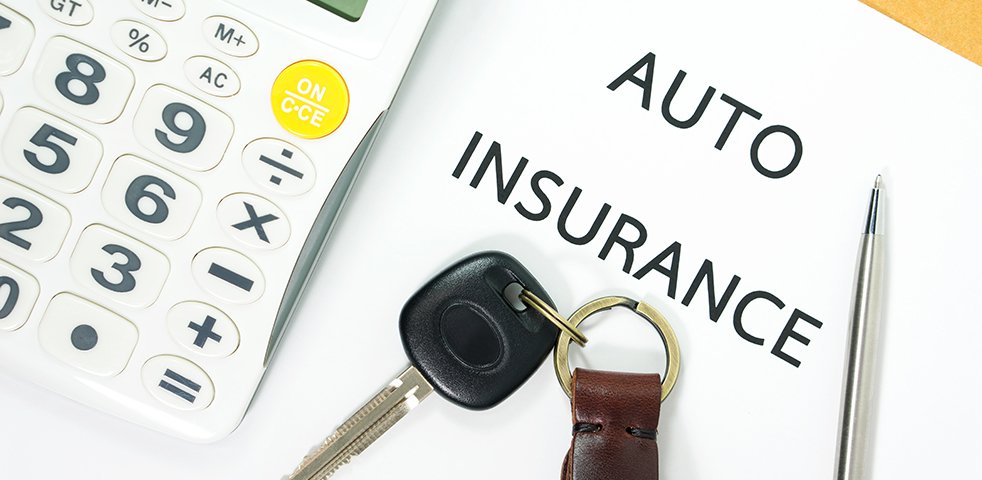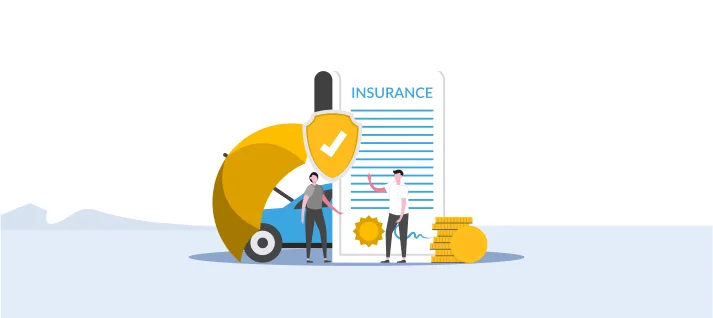Introduction to Auto Insurance Laws in Texas
In Texas, auto insurance is not only important for financial protection but also a legal requirement for all drivers. The state mandates that drivers must carry a minimum amount of liability insurance coverage to legally operate a vehicle. Specifically, Texas law requires drivers to have at least $30,000 in coverage for bodily injury per person and $60,000 per accident, along with $25,000 for property damage. This mandatory liability coverage is designed to ensure that all drivers can cover damages in the event of an accident, safeguarding the interests of all road users.
Failing to maintain the necessary insurance can lead to severe consequences. The legal framework in place aims to encourage compliance and ensure that all drivers are adequately insured to protect themselves and others in case of an accident. If a driver is caught operating a vehicle without insurance, they may face various penalties that can be both financial and legal in nature.
The penalty for driving without insurance in Texas typically involves hefty fines, which can range from $175 to $350 for a first offense. Additionally, repeat offenders may encounter increased penalties and even the possibility of having their vehicle impounded. Moreover, drivers without insurance risk a suspension of their driving privileges, making it difficult to legally operate a vehicle in the future.
In conclusion, adhering to auto insurance laws in Texas is crucial not only for compliance with legal requirements but also for ensuring one’s safety and the safety of others on the road. Understanding the importance of liability coverage and the consequences of non-compliance can help drivers make informed decisions about their insurance needs, ultimately promoting responsible driving within the state.
Understanding Insurance Requirements in Texas
In Texas, the law mandates that all drivers must carry a minimum level of liability insurance to ensure financial responsibility in the event of an accident. This requirement plays a crucial role in protecting all parties involved in a vehicular mishap. According to the Texas Department of Insurance, the minimum liability coverage required is $30,000 for bodily injury per person, $60,000 for bodily injury per accident, and $25,000 for property damage. This means that a driver must be able to cover these costs after an accident, preventing financial burdens from being placed solely on the victims.
Beyond the minimum liability coverage, Texas law also allows for alternative forms of financial responsibility. This includes obtaining a surety bond, a cash deposit with the Texas Department of Public Safety, or a certificate of self-insurance for those who qualify. However, the most common and simplest method for most drivers remains traditional auto insurance. Understanding what is the penalty for driving without insurance in Texas underscores the importance of complying with these insurance requirements. If one were to drive without coverage, they risk facing significant legal repercussions.
Additionally, drivers must be prepared to provide proof of insurance when requested by law enforcement. Acceptable forms of proof include a physical insurance card, a digital version on a mobile device, or documentation issued by the insurance company. It is essential for drivers in Texas to keep this proof readily available, as failing to present it during a traffic stop may also lead to penalties, regardless of whether or not the driver possesses insurance. Compliance is key in avoiding the penalties associated with driving without insurance and ensuring a smooth driving experience on Texas roads.
Penalties for Driving Without Insurance
Driving without insurance is a serious offense in Texas, with specific penalties designed to discourage such behavior and promote responsible vehicle operation. When caught operating a vehicle without the required insurance, a driver faces a range of repercussions, which vary for first-time offenders and repeat offenders. For first-time offenders, the immediate penalty typically includes a fine ranging from $175 to $350, along with potential administrative fees that can further elevate the total amount owed. This financial consequence serves not only as a punishment but also as a deterrent for future violations.
Should a driver be cited for a second offense or more, the penalties become more severe. In Texas, repeat offenders may be subject to fines between $350 and $1,000. Additionally, for subsequent violations, there is the possibility of facing up to 180 days in jail. The severity of these penalties reflects the state’s commitment to ensuring that all drivers maintain adequate insurance coverage while operating a vehicle. It is important to understand both the legal ramifications and the financial implications that can arise from failing to secure proper insurance.
Beyond monetary fines and jail time, driving without insurance can also have significant implications for driving privileges. Texas law mandates that the Department of Public Safety may suspend the driver’s license for a specified period following a violation. Moreover, reinstating one’s driving privileges can require payment of additional fees and proof of future financial responsibility, which could involve high-cost insurance policies known as SR-22 insurance. Ultimately, the penalties for driving without insurance in Texas are designed not only to punish offenders but also to encourage adherence to state insurance requirements and promote road safety for all.
Consequences of Getting Caught Without Insurance
Driving without insurance in Texas carries significant consequences that extend beyond immediate legal repercussions. If a driver is caught operating a vehicle without the mandated insurance coverage, they face various penalties that may severely impact their financial situation and driving record. One of the primary financial consequences includes hefty fines. Texas law stipulates that the minimum fine for violating the no-insurance rule is typically around $175, but it can escalate up to $350 for repeat offenders. These fines are only the beginning; additional court costs and fees can further exacerbate the financial burden.
In addition to direct fines,
being caught without insurance can lead to an increase in future insurance premiums. Insurance companies often classify uninsured drivers as high-risk, which may result in significantly higher premiums once the individual seeks coverage. This is particularly pertinent for Texans, where the average increase in premiums can be substantial, forcing drivers to pay much more than they might have previously. Such increases can last for several years, reflecting the long-term implications of being cited for driving without insurance.
Furthermore, the event of being caught without insurance can have legal ramifications, such as points being added to the driver’s record. Accumulation of points can lead to potential additional penalties, including the possibility of license suspension. Additionally, driving without insurance can result in a SR-22 requirement, where the driver must file proof of insurance with the state, further complicating their road to compliance and financial recovery.
The ramifications extend into personal and societal facets as well; uninsured drivers contribute to higher costs for everyone in the form of increased premiums for insured individuals and additional financial strains on public resources. As such, understanding the penalty for driving without insurance in Texas, along with its broader implications, serves as crucial information for all drivers. Failure to adhere to insurance requirements not only leads to legal troubles but can also impact one’s entire driving experience for years to come.
How to Avoid Driving Without Insurance
Driving without insurance in Texas can lead to severe penalties, including fines and potential legal repercussions. Therefore, it is crucial to be informed about how to maintain compliance with Texas insurance laws. One of the best ways to prevent the risk of operating a vehicle without insurance is to obtain coverage that fits your financial situation. Research various insurance providers to find affordable insurance options that meet the minimum coverage requirements mandated by the state. Many companies offer competitive rates, and you might discover discounts based on factors such as driving history or bundling policies.
Another viable approach is to take advantage of payment plans that some insurance companies provide. These plans allow you to spread out the cost of your insurance premium over several months, making it more manageable for your budget. By breaking down the payment into smaller amounts, you can avoid the risk of going uninsured due to financial strain, ensuring compliance with the law. Additionally, regularly reviewing your policy can help identify potential savings as your circumstances change over time.
For low-income drivers, several state programs are designed to assist individuals in obtaining affordable insurance. The Texas Department of Insurance offers resources that can help you navigate these options, ensuring you have the necessary information to secure coverage. By participating in these state programs, you may find financial assistance or reduced premiums tailored to your needs, thus mitigating the risk of driving without insurance in Texas.
In conclusion, being proactive about your insurance requirements, exploring payment options, and utilizing state resources can greatly reduce the likelihood of driving without insurance in Texas, protecting both yourself and other road users from potential penalties.
Alternatives to Traditional Insurance
In Texas, while traditional auto insurance is a common requirement for drivers, various alternatives exist that can provide the necessary financial protection without conforming to standard insurance policies. Two notable alternatives are self-insurance and surety bonds, each presenting unique pros and cons.
Self-insurance is an option for individuals who possess the financial capability to cover potential damages from car accidents. In Texas, to qualify as a self-insurer, a driver must have a minimum net worth of $60,000, coupled with the ability to demonstrate sufficient financial resources to handle any liability claims. The primary advantage of self-insurance is that it offers flexibility and eliminates ongoing premium costs. However, it requires a significant financial commitment upfront and may not provide the immediate coverage that typical auto insurance policies offer.
Another alternative is to use surety bonds, which act as a guarantee of payment for damages or injuries caused by a driver who is found to be at fault in an accident. The bond must be in amounts that correspond with state minimum liability coverage requirements. The appeal of surety bonds lies in their potential for lower upfront costs compared to some insurance premiums. However, this option does not cover the driver for their injuries, and securing a surety bond can be complicated, often involving credit checks and fees that can add to overall expenses.
Regardless of the alternative chosen, it is crucial to remember that the state of Texas mandates proof of financial responsibility, which can be satisfied through traditional insurance or specific alternatives. This requirement highlights the importance of understanding what is the penalty for driving without insurance in Texas, as these consequences can be significant. Exploring these alternatives may not only provide flexible solutions but also help drivers adhere to Texas regulations while managing their financial obligations responsibly.
What to Do If You Are Caught Driving Without Insurance
Being pulled over by law enforcement and being found without insurance can be a stressful experience. The first step is to remain calm and comply with the officer’s requests. It is essential to provide your driver’s license and vehicle registration, but you should avoid admitting to the lack of insurance before understanding the full scope of your situation. Your rights include the ability to remain silent and the right to legal counsel should the need arise.
If you are cited for driving without insurance in Texas, it is crucial to gather any relevant information regarding the incident. Note the details of the stop, including the officer’s name, badge number, and the reasons for the traffic stop. This documentation can be valuable if you decide to contest the ticket. Additionally, remember that Texas law mandates drivers to have liability insurance, so being found without it may lead to significant repercussions.
After receiving a citation, you typically have a few options. You can choose to pay the fine, which may result in a conviction on your record, or you can dispute the ticket in court. If you opt for contesting it, consider seeking legal advice to understand the potential outcomes and the best way to present your case. Furthermore, if you can prove that you have obtained insurance after the incident and before your court date, it may lead to a reduction or dismissal of the penalty for driving without insurance in Texas.
In addition to the legal repercussions, be aware that driving without insurance can impact your insurance premiums in the future. Insurers may view this infraction as a high-risk behavior, subsequently driving up your rates. Hence, it is advisable to secure an insurance policy promptly and ensure that you understand the state’s requirements to avoid similar situations again.
Understanding SR-22 Requirements
An SR-22 is a document that proves a driver has the minimum required amount of auto insurance coverage. It is not an insurance policy itself but rather a form that your insurance provider files with the state on your behalf. In Texas, there are specific circumstances under which an SR-22 may be required, particularly following certain violations related to lack of insurance. Understanding these requirements is crucial for any driver in Texas.
Conclusion: The Importance of Compliance
Maintaining valid insurance coverage while operating a motor vehicle in Texas is not merely a legal obligation; it is a crucial aspect of responsible driving. The state imposes strict penalties for driving without insurance, which can significantly affect an individual’s finances and driving privileges. Understanding the consequences of such actions highlights the importance of adhering to the law, as well as ensuring personal and public safety on the roads.
The penalties for driving without insurance in Texas can vary, depending on the number of offenses and specific circumstances. Initially, first-time offenders may face a fine ranging from $175 to $350, which can escalate for repeat violations. Additionally, individuals may be required to file an SR-22 form, indicating proof of insurance for a designated period. Repeated violations not only involve financial penalties but can also lead to the suspension of one’s driver’s license, making it imperative to comply with Texas insurance regulations.
By securing a valid insurance policy, drivers not only protect themselves from potential financial repercussions but also contribute to the collective safety of the community. Insurance plays a pivotal role in safeguarding against accidents and unforeseen circumstances, providing essential coverage for property damage and medical expenses. Therefore, it is critical for all Texas drivers to familiarize themselves with the legal requirements regarding car insurance and the associated penalties for non-compliance. Failure to do so may have dire implications, underscoring the necessity of proper insurance coverage while navigating the roads of Texas.



